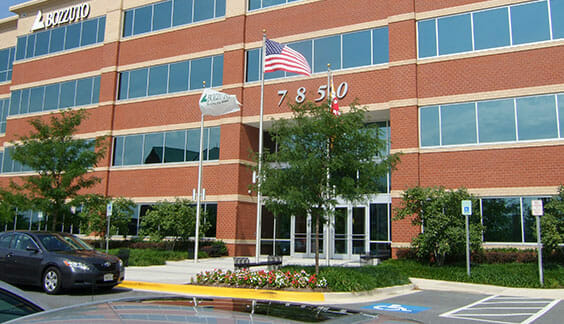Experienced Juvenile Justice Lawyers in Maryland
If you or a loved one is a juvenile offender in Rockville, Greenbelt, or the surrounding Maryland area then you should act quickly to retain legal counsel. The juvenile justice system is intimidating to some, frightening to others, and confusing to most.
The juvenile law attorneys at Houlon Berman have the experience and compassion necessary to help you navigate the intimidating landscape of the Maryland juvenile justice system. Let us help you understand juvenile justice charges and begin preparing your defense today.
Juvenile Offenders
It is a tragedy when the lives of young people are negatively impacted by youthful indiscretions or, even worse, juvenile crimes cases that remain on a minor’s permanent record.
Great care should always be taken when handling the criminal cases involving young people. Parental involvement is paramount to success and a properly respectful relationship between the minor, his or her parents, and a qualified juvenile defense lawyer will often lead to the greatest chances of success.
Preparing and Understanding Your Defense
There are important procedural and terminological differences between the juvenile justice system in Maryland and the criminal justice system. Knowing these will help children and parents move with more confidence and understanding throughout their legal proceedings.
Key Differences
Perhaps the most important difference is that the focus of our juvenile justice system is to provide care, treatment, and supervision as opposed to dealing out punishment or retribution. The goal is to provide a way out for kids in bad situations while offering the opportunity for a bright future.
Terminology:
- “Delinquent Acts” is used in place of “crimes.”
- A “status offense” is an action prohibited only to a certain class of people, in this case minors. Examples would be truancy, running away, or violating curfew. In Maryland, status offenders are known as “children in need of services” or “CHINS” for short.
- A minor will receive a verdict of “involved” or “not involved” as opposed to “guilty” or “not guilty.”
Process:
Arrest: A minor is taken in for committing, or upon suspicion of committing, a delinquent act. They will be photographed, fingerprinted, and entered into the system. They can have a lawyer present and, depending on the circumstances, a parent. After the arrest is made, a minor can only be held for six (6) hours before being charged.
Intake: This process acts as the first real interaction of a minor with the juvenile justice system. A minor can be brought directly to the intake officer at the courthouse in lieu of a trip to the police station.
An interview is held and the intake officer decides how to proceed. They may choose “diversion,” in which case the minor is not officially charged but is entered into a community or state support program to help avoid future illegal activities. The minor can be released into their parents’ custody with a summons to appear before a judge at a future date or they can be sent directly to a juvenile detention center to await their hearing. What happens at intake will depend greatly upon the severity of the delinquent act and the existence of additional offenses in the past.
Detention Hearing: This is much like a trial though no jury is involved for juvenile offenders. You are permitted to have a lawyer and it is highly recommended that you do. This could be either a public defender or private legal counsel.
Adjudication: Here it is decided whether the minor is “involved” or “not involved.”
Disposition: This is where the sentence is declared.
Placement: Any number of decisions could be made depending on the sentence. Generally speaking, the juvenile offender could be confined to a juvenile services facility, complete a community detention program, or be electronically monitored by phone or an ankle bracelet.
Defending Juvenile Offenders
A criminal record can have long-reaching negative repercussions for someone’s education, employment, and success. In addition, the process of moving through the juvenile justice system can be traumatic for both the minor and their parents. An attorney should be present every step of the way as you work toward the resolution of your case.
Contact Houlon Berman
The hallmarks of our Maryland legal practice have been compassion and personal attention; exactly what is required in a juvenile crimes case.
Go from Juvenile Crimes to the main Criminal Law page
Return to the Houlon Berman Homepage


